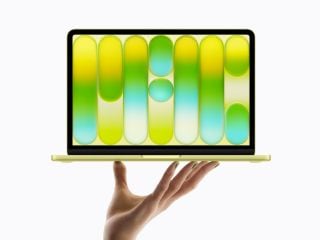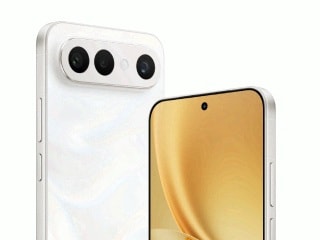- Home
- Mobiles
- Mobiles News
- US Startups Get Approval for Smartphone Based Heart Tracking
US Startups Get Approval for Smartphone-Based Heart Tracking

This week, two Silicon Valley startups received a green-light from the U.S. Food and Drug Administration for mobile applications that monitor patients from home, a step forward for a nascent digital health industry that has pressed for more clarity from the agency on regulations.
AliveCor said it received the FDA's approval to detect serious heart conditions in electrocardiogram (ECG) readings taken from a mobile device. The company says its newly-approved algorithm can detect atrial fibrillation, a form of cardiac arrhythmia that affects about one in four adults over the age of 40. If its smartphone-compatible heart-monitor device detects an abnormality, a physician could intervene before the patient experiences a stroke or other life-threatening event.
The device fits most smartphones and rests on a patient's finger or chest to record an ECG.
"Atrial fibrillation is very hard to identify," said Euan Thomson, AliveCor's chief executive. "A large group of people have it, but don't know they have it."
Thomson said AliveCor can detect the condition and send the data to a cardiologist for review. The company plans to incorporate this algorithm into its application and make it available to consumers by September.
In addition, startup Vital Connect received approval for a patch the "HealthPatch MD" that patients can attach to one of three areas on their chest and view their own biometric data on a mobile device.
Sensors embedded in the band-aid sized patch track heart rate, pulse variability, respiratory rate, skin temperature, steps, "fall" detection and more.
Valeska Schroeder, the company's vice president of product management, said the medical device will hit the market in the United States, and potentially also Canada and Europe, by the end of the year. Patients need a prescription to buy the device.
What is unique about Vital Connect is that it puts the data in context, Schroeder explained. If a patient's heart rate spikes when they are lying flat in bed, that is typically a worrisome sign. But during exercise or a fall, it is a typical occurrence. If they opt in, physicians get notified when their patients hit or exceed set thresholds.
Vital Connect first hit the headlines when Apple poached one of its senior executives, Ravi Narasimhan, as part of a larger effort to hire talent from the medical field.
"We know we are working in a hot market," said Schroeder. "We know other firms are interested in making related products."
These companies are taking different approaches, but they share the goal of helping doctors track patients remotely and take steps to prevent fatal outcomes. Data may also inform physicians about whether their patients should schedule an in-person or emergency room visit.
According to the Centers for Disease Control, 129.8 million people visited the emergency room in 2010 and 13 percent of these visits resulted in hospital readmission.
"By getting an intelligent device in the hands of a patient, we hope to fulfill the vision for mobile health," said Thomson.
© Thomson Reuters 2014
For details of the latest launches and news from Samsung, Xiaomi, Realme, OnePlus, Oppo and other companies at the Mobile World Congress in Barcelona, visit our MWC 2026 hub.
Related Stories
- Samsung Galaxy Unpacked 2026
- iPhone 17 Pro Max
- ChatGPT
- iOS 26
- Laptop Under 50000
- Smartwatch Under 10000
- Apple Vision Pro
- Oneplus 12
- OnePlus Nord CE 3 Lite 5G
- iPhone 13
- Xiaomi 14 Pro
- Oppo Find N3
- Tecno Spark Go (2023)
- Realme V30
- Best Phones Under 25000
- Samsung Galaxy S24 Series
- Cryptocurrency
- iQoo 12
- Samsung Galaxy S24 Ultra
- Giottus
- Samsung Galaxy Z Flip 5
- Apple 'Scary Fast'
- Housefull 5
- GoPro Hero 12 Black Review
- Invincible Season 2
- JioGlass
- HD Ready TV
- Latest Mobile Phones
- Compare Phones
- Vivo X300 FE
- Tecno Pop X
- Apple iPhone 17e
- AI+ Pulse 2
- Motorola Razr Fold
- Honor Magic V6
- Leica Leitzphone
- Samsung Galaxy S26+
- MacBook Neo
- MacBook Pro 16-Inch (M5 Max, 2026)
- Tecno Megapad 2
- Apple iPad Air 13-Inch (2026) Wi-Fi + Cellular
- Tecno Watch GT 1S
- Huawei Watch GT Runner 2
- Xiaomi QLED TV X Pro 75
- Haier H5E Series
- Asus ROG Ally
- Nintendo Switch Lite
- Haier 1.6 Ton 5 Star Inverter Split AC (HSU19G-MZAID5BN-INV)
- Haier 1.6 Ton 5 Star Inverter Split AC (HSU19G-MZAIM5BN-INV)
















